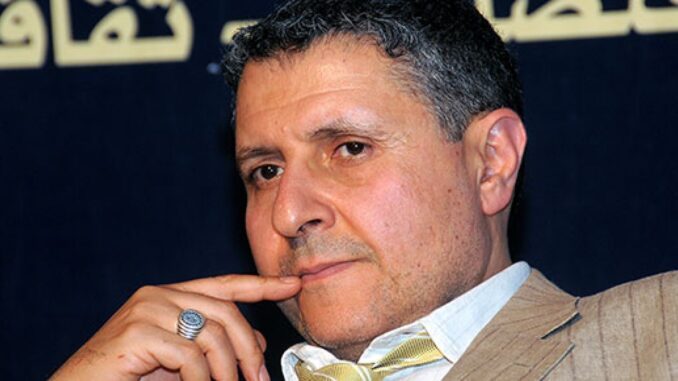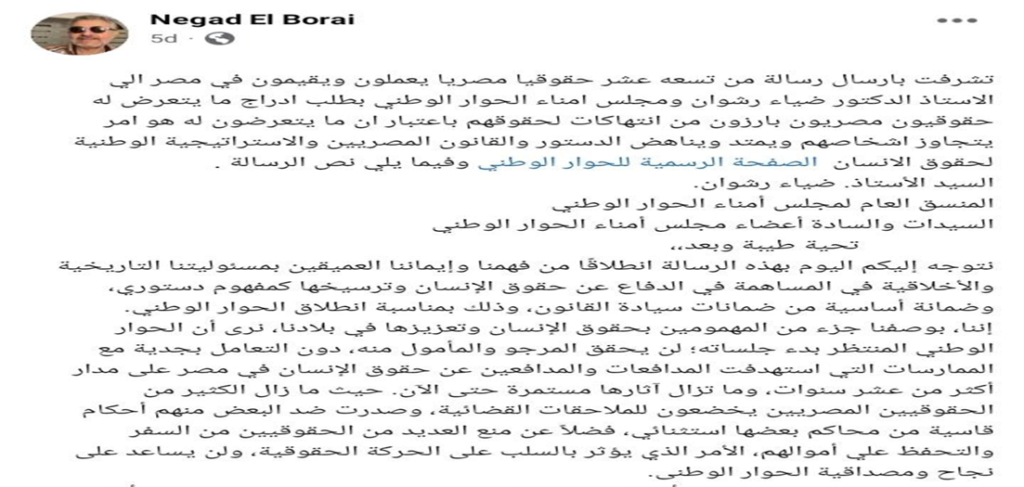
Negad El Borai, member of the National Dialogue (ND) board of trustees has published a letter signed by 19 lawyers, warning that the dialogue won’t resolve Egypt’s countless challenges unless the regime commits to honoring human rights
The national dialogue board of trustees member Negad El Borai a few days ago delivered a letter signed by nineteen lawyers to the dialogue’s coordinator, Diaa Rashwan, warning that the dialogue will not be able to resolve Egypt’s myriad challenges unless the regime commits to honoring constitutionally guaranteed human rights.
The letter’s signatories include leading members of civil society, including Egyptian Initiative for Personal Rights Executive Director Hossam Bahgat and Center for Egyptian Women’s Legal Assistance founder Azza Soliman, most of whom have faced—and, in many cases, are still facing—various forms of targeting from the state.

Following similar appeals from the Civil Democratic Movement and other public figures, the lawyers recommend four specific steps that the national dialogue’s organizers should publicly support, without which the dialogue will “lack credibility.”
The first is to improve the legal and administrative framework for NGOs, many of which have been forced to suspend their work due to the repressive 2019 NGO law.
The Arabic Network for Human Rights Information (ANHRI), for instance, shut down in January after facing “an almost impossible difficulty” in registering under the law.
The second step is for an end to the prosecutions, travel bans, and asset freezes against human rights defenders, including through the decade-old “NGO foreign funding case,” Case 173/2011.
Many have had to contend with asset freezes and travel bans even after being exonerated from the case; El Borai himself only had his five-year-long travel ban lifted this February.
The third step refers to unjustly imprisoned lawyers, including those convicted in unfair trials, such as Mohamed El-Baqer, and others subjected to indefinite pretrial detention, like Haitham Mohamedain.
It also mentions Cairo Institute for Human Rights Studies Director Bahey eldin Hassan, who was sentenced in absentia to 15 years in prison over a tweet.
Finally, the last step calls for an end to authorities’ weaponization of Egypt’s airports, which ANHRI described in a report last year as “a trap for critics and opponents.”
One of the letter’s signatories, researcher Patrick George Zaki, was arrested upon arrival at Cairo’s airport in 2020 and spent nearly two years in prison. He is still facing charges.
The letter concludes, stating:
“We believe that the nation’s…stability and ability to face the enormous challenges it is facing will not come without a reconsideration of the state’s stance on justice and respect for the law and the constitution—at the heart of which is making way for a strong and independent civil society, free and critical media, and active political life.”



